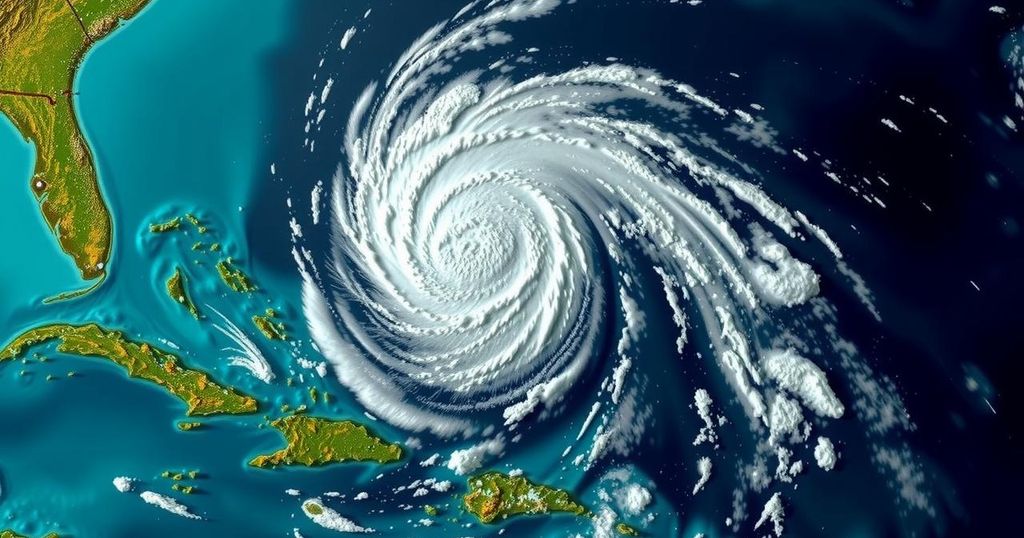Record-Breaking 2024 Atlantic Hurricane Season: Hurricane Helene’s Impact
The 2024 Atlantic hurricane season concluded with a total of 18 named storms, including Hurricane Helene, which became the deadliest U.S. storm since Katrina, causing over 150 fatalities. Significant rainfall and tornadoes occurred with Hurricane Milton. NOAA highlighted advances in storm forecasting, emphasizing the need for preparedness as hurricane activity intensifies.
The 2024 Atlantic hurricane season concluded on November 30, distinguished by unprecedented meteorological events and significant devastation. With a total of 18 named storms, including 11 hurricanes and five major hurricanes, the season was one of the most active on record. Notably, Hurricane Helene emerged as the deadliest storm to impact the United States since Hurricane Katrina, striking the Gulf Coast on September 26 as a Category 4 hurricane. The storm inflicted severe flooding and resulted in over 150 casualties.
Another significant event was Hurricane Milton, which made landfall on October 9, near Siesta Key, Florida, as a Category 3 storm, spawning 46 tornadoes and producing torrential rainfall in certain regions, with totals exceeding 15 inches. The National Oceanic and Atmospheric Administration (NOAA) attributed advancements in storm forecasting technology as a critical factor in effectively tracking these storms. Enhanced forecasting tools facilitated timely alerts for coastal residents, highlighting the essential nature of preparedness in light of escalating hurricane activity.
The season’s early storms were noteworthy as 12 storms formed prior to the peak of hurricane activity in September, while an unprecedented seven hurricanes developed following September 25. Scientists have correlated higher wind patterns over West Africa to the lull in storm activity experienced before the subsequent surge. NOAA continues to advocate for community vigilance as research efforts to improve storm forecasting persist.
The 2024 Atlantic hurricane season was characterized by extreme weather patterns and devastating impacts, reflective of broader climate trends. Historically, hurricane seasons have varied significantly in their intensity and frequency, influenced by oceanic temperatures and atmospheric conditions. Increased storm activity raises critical concerns regarding disaster preparedness and response, as seen in the impacts of recent hurricanes on communities along the Atlantic coast. The severity of these storms underlines the necessity for advancements in meteorological science and community readiness to mitigate risks associated with future hurricane seasons.
In conclusion, the 2024 Atlantic hurricane season will be remembered for its record-setting activity and the tragic consequences of Hurricane Helene, establishing it as the deadliest storm in the U.S. since Katrina. As climate conditions evolve, understanding the patterns of hurricane formation and leveraging enhanced forecasting tools will be paramount in safeguarding communities. Ongoing research and preparation efforts by NOAA emphasize the criticality of public awareness and diligence in face of natural disasters.
Original Source: countryherald.com




Post Comment